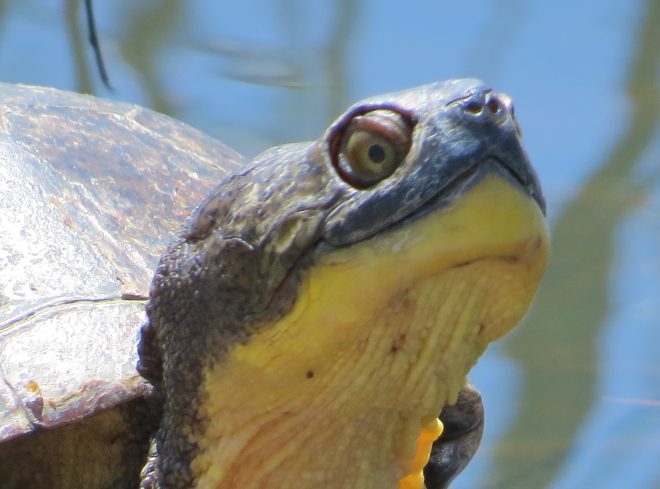
By: Barry Kent MacKay
When something is not working well, do you make it worse, or better?
Worse if you are the government of Doug Ford, Premier of Ontario. He is not happy with the Endangered Species Act, 2007, (ESA) which seeks to protect species of wild animals and plants at risk in the province, but, according to the government, forces a “process for issuing permits [that] is slow and complex, causing unnecessary delays and costs for housing, transit, and critical infrastructure projects, without resulting in significant gains for species.”
If you look at the government’s own website, and randomly click on almost any threatened species, scroll down to get an explanation of why that species featured is listed under the ESA. With few exceptions, you will find that human actions, such as housing, transit, and critical infrastructure projects, are responsible for the degradation or elimination of habitat essential to that species. If survival is deemed “critical” there is nothing more critical to any species than what conservationists call “habitat”.
Ford’s government is proposing Bill 5, An Act to Enact the Special Economic Zones Act, 2025, to Amend the ESA 2007, and replace it with the Species Conservation Act 2007, and to amend various Acts and revoke various regulations in relation to development and procurement. To understand why this will accelerate the endangerment of Ontario’s wild plants and animals, a brief lesson in ecology is needed. Put simply, conservationists divide species into two broad groups: the generalists, whose survival needs are served by a wide variety of homes – habitats – and the specialists, whose survival needs are more specialized and restricted.
Generalists are often common, and include familiar species like crows, raccoons, meadow voles, coyotes…and humans. But most species on the ESA lists are more specialist than generalist. Their needs are more specific than those of crows or raccoons. The problem is not the ESA, but that the effort to protect habitat critical to survival of more specialized species is so poorly enforced.
The world is losing species faster than at any time in the last sixty-five million years, when the dinosaurs vanished, and the rate of loss is accelerating. It is not that we can’t cohabit with a diverse range of species, but we have to make the effort to do so, and that means what Ford calls “red tape”, the requirements to carefully assess each project that will alter the environment to assure that it does not do so to the detriment of a species dependent upon that habitat.
Ford wants to sweep all that away, plus the hard-established rights of Indigenous peoples to protect their own environmental interests, if either presents an impediment to all that seems to matter to him, the ability to appease “developers”. Their activities, in the absence of any accommodation of the well-established need for species diversity and conservation, can irrevocably destroy what is critical to so many other species. As we destroy the ability of the planet to support frogs, butterflies, bobolinks, beetles, ferns or forests, we also destroy its ability to support ourselves. This bill, put simply, would eliminate from swaths of Ontario any ability to protect what is there, abolish accountability of people paid by our taxes to protect our greater interests, and ignore the advice of the many experts now in opposition to what Ford is trying to do.
This is the same government that broke its promise to protect the Greenbelt; allowed slob hunters to slaughter cormorants; expanded the spring bear hunt; reversed the phasing out of dog training and trial compounds; and so much more.
We must stop this reckless march toward environmental disaster. If you live in Ontario, write to your Member of Provincial Parliament immediately and demand the withdrawal of Bill 5, and do so quickly, as this sweeping legislation will be rammed through at warp speed in appeasement to greed, cruelty, and indifference to what we are destroying.
